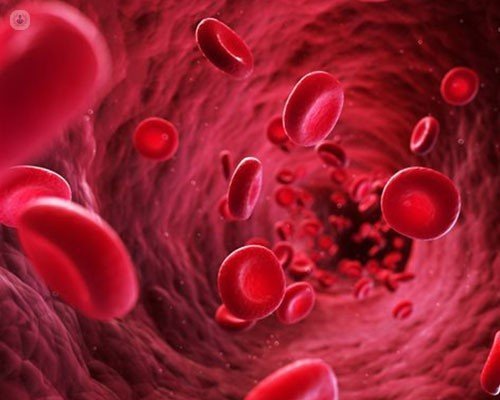Anaemia: causes, symptoms and treatment
Written by:
Anaemia refers to a low haemoglobin level in the blood. Haemoglobin in the main pigment found in red cells, which carries oxygen from the lungs to the tissues. Each laboratory will have a normal range for haemoglobin levels in men and women.

Symptoms of anaemia:
- Fatigue
- Shortness of breath – particularly on exertion
- Dizziness
- Poor appetite
Anaemia is a significant problem for patients who have intercurrent cardiac or lung problems, such as angina or breathlessness from chronic pulmonary disease. The anaemia may exacerbate symptoms such as chest pain in angina or breathlessness in patients with heart failure or chronic lung disease.
Pernicious vs. severe anaemia
Pernicious anaemia
Pernicious anaemia is one type of anaemia caused by a deficiency of vitamin B12. Vitamin B12 helps the body to make healthy red cells. It is found mainly in animal foods including meat, fish, eggs and dairy products. The haemoglobin level is low and the red cell size or MVC is often raised. A low vitamin B12 level is measured in the blood. In a patient with pernicious anaemia it is important to investigate the underlying cause, which, for example could be dietary such as in a vegan patient. It can be due to malabsorption or abnormalities in the gastrointestinal tract and also auto-immune diseases.
It is important to diagnose vitamin B12 deficiency as other problems can occur aside from anaemia, such as complications with the nervous system. Treating pernicious anaemia is usually simply a matter of replacing vitamin B12, typically by occasional injections of vitamin B12 intramuscularly. Sometimes oral vitamin B12 can be used if the absorption process is not affected.
Severe anaemia
Severe anaemia is different from pernicious anaemia. There is no generally accepted level of haemoglobin which is classified as severe anaemia. An anaemia that is causing significant symptoms in the patient, or other signs such as a rapid heartbeat or cardiac problems, could classify this as severe. For most healthy people, a haemoglobin level of 80g/L or above is generally well tolerated but this is not necessarily the case for patients with intercurrent heart or lung problems.
Treatment of anaemia
Treatment of this condition can only be commenced when the underlying cause is recognised. Anaemia in itself is not a diagnosis. It reflects a disease process with either underproduction of red cells or increase destruction of red cells. A blood transfusion will increase haemoglobin levels quickly, but without addressing the underlying causes of anaemia the haemoglobin will slowly fall.
Erythropoietin is a hormone produced by the kidney which regulates red cell formation in the bone marrow. Injections of erythropoietin can easily be given subcutaneously and this can boost haemoglobin levels. This is applicable to some patients with anaemia. For the majority however the treatment is directed against the underlying cause, for example, this can be by taking iron or vitamin supplements such as vitamin B12 or folic acid.
Is anaemia preventable?
Dietary anaemia is preventable and this is a relatively common cause of anaemia worldwide. Adequate intake of iron, vitamin B12 and folic acid are required. This can be achieved by a mixed healthy diet. Vegetarians or vegans are prone to iron and / or vitamin B12 deficiency and individuals with poor intake of vegetables can be prone to folic acid deficiency.
Excessive alcohol intake can exacerbate anaemia. Anaemia can also be due to chronic blood loss and patients should always report symptoms of this if noticed to their doctor e.g. bleeding from the bowel or heavy menstrual periods.


